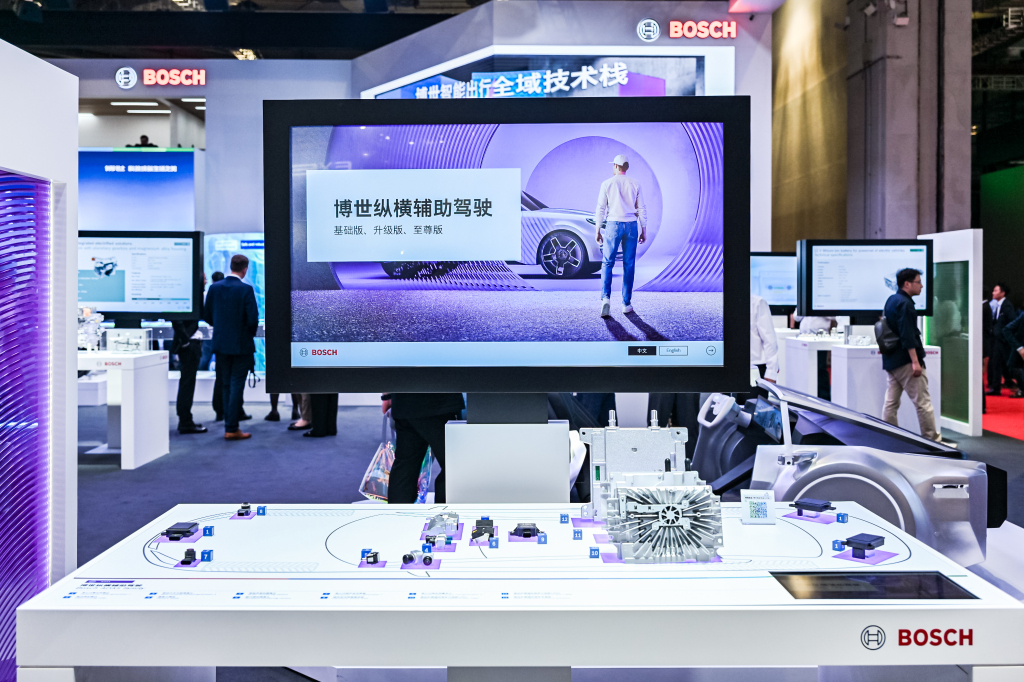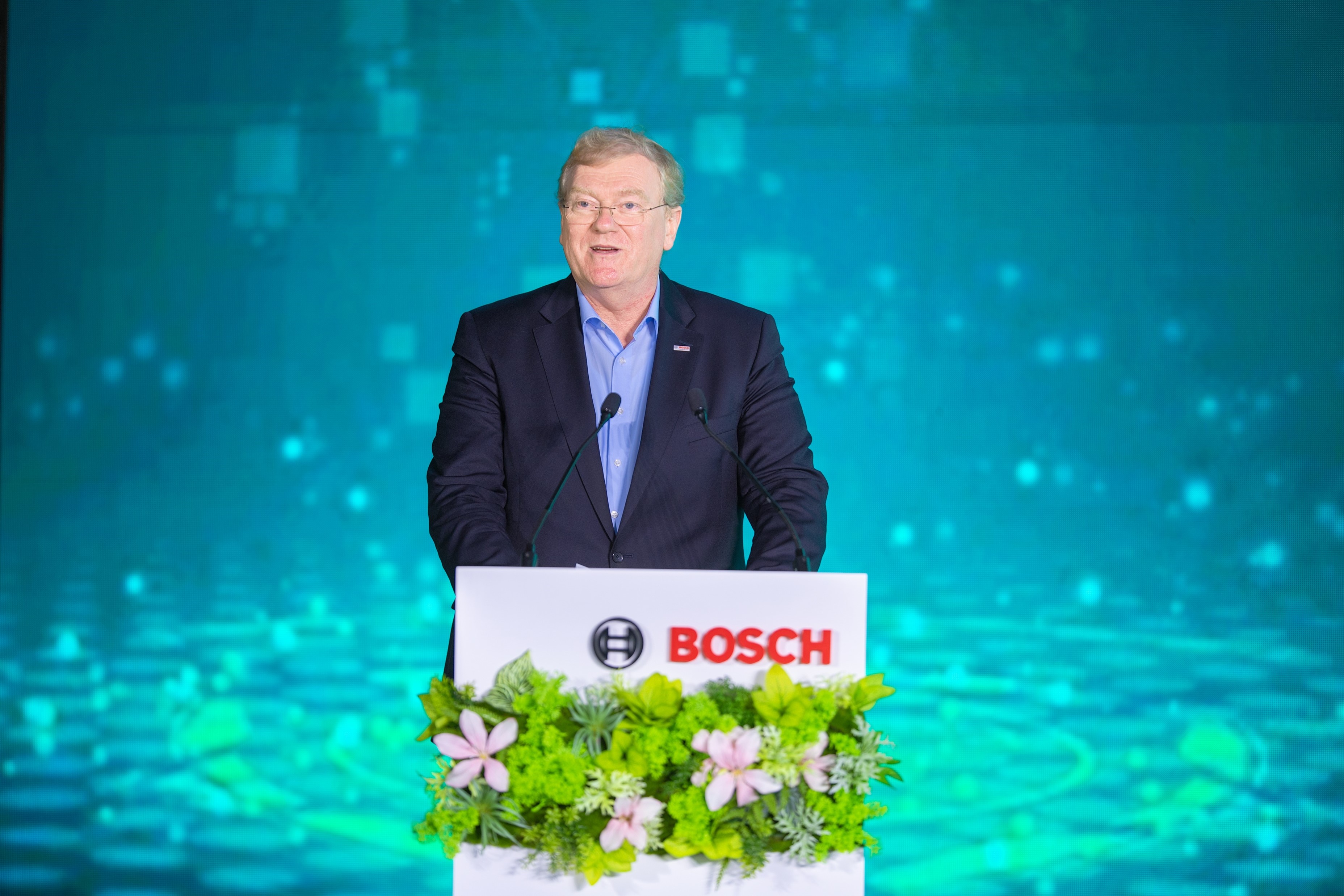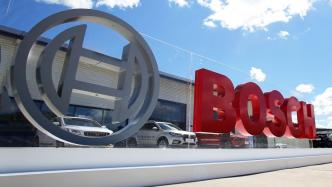
The current wave of intelligence is reshaping the automotive industry. In order to seize the next technological high ground, more and more automakers choose to develop their own products. In addition, technology giants such as Huawei have entered the market. How should established suppliers respond? On April 23, Dr. Markus Hein, member of the Bosch Group Board of Management and Chairman of Bosch Intelligent Mobility Group, said after the auto show press conference: "Bosch is not afraid of competition, but welcomes it. Our job is to continuously launch better products that are more acceptable to customers and more cost-effective under the pressure of competition."
Officially launched the "Zongheng Assisted Driving" brand to bring a safer and more humanized driving experience
To further promote the development of the smart car ecosystem, Bosch continues to innovate in the field of intelligence. At this year's Shanghai Auto Show, Bosch officially launched its new assisted driving brand, Bosch Vertical and Horizontal Assisted Driving, which covers three product lines: Vertical and Horizontal Assisted Driving Basic Edition, Upgraded Edition and Supreme Edition, forming a full range of assisted driving matrix covering SAE L2 level. Among them, the basic version provides basic functional experience such as urban lane keeping and in-car emergency braking; while the upgraded version and the supreme version are mass-produced solutions for complex road scenes in urban areas.
Dr. Markus Hein emphasized the importance of AI to the field of mobility. Bosch will bring a safer and more humanized driving experience with its urban assisted driving solution based on end-to-end algorithms. At the beginning of 2025, Bosch has launched an urban assisted driving solution based on an end-to-end model, and plans to expand the end-to-end model to high-speed roads and city memory driving assisted driving solutions by the end of the year. At the same time, Bosch is also developing a visual language model to improve the assisted driving system's understanding of language and traffic scenarios.

Adhere to the bottom line of safety and use global experience to empower car companies to go global
As the core selling point of differentiated competition among automakers, intelligent assisted driving is developing very rapidly in China. According to data from the Ministry of Industry and Information Technology, in 2024, the sales of new passenger cars with combined assisted driving functions in China will account for 57.3%. At the same time, intelligent driving systems have gradually become standard equipment for automakers, with prices dropping to 150,000 yuan for independent brands. According to the February 2025 Intelligent Connected Vehicle Insight Report released by the China Passenger Car Association, the intelligent driving installation rate in the market below 160,000 yuan will further increase.
It is reported that with the rapid growth of China's demand for intelligent assisted driving, Bosch has reached cooperation with five Chinese OEMs on expressway and city memory driving assisted driving. Most of the projects will be put into mass production this year, and another project for overseas markets will be put into mass production in the first quarter of 2026.
Why is Bosch's intelligent assisted driving favored by manufacturers? Dr. Markus Hein believes that Bosch's intelligent assisted driving has two major advantages. The first is safety and reliability. Safety is still one of the key factors in people's car purchase decisions, and safety is also the essential feature of travel. In the past two years, the competition among car companies in the field of intelligent driving has gradually become fierce. It was not until a series of safety accidents caused by system failures occurred that they suddenly realized that reliability should be placed above speed. "Bosch has more than 30 years of experience in developing ADAS, and we have extensive experience in safety and reliability." Dr. Markus Hein said.

Secondly, Bosch's global experience will fully empower car companies to go overseas. "Most of Bosch's customers, especially Chinese OEMs, hope that their products can be used in both China and overseas. When it comes to going overseas, you need to take into account contemporary laws and regulations, different driving habits, etc. As a global company, Bosch is very experienced in these areas." In the view of Dr. Markus Hein, "The automotive industry is still a global industry. When car companies consider going overseas, they need to consider the road conditions in different countries and markets overseas, ensure that the system and data meet local compliance requirements, and bring convenience to local users."
"With its full-stack technological capabilities, profound innovative industrialization experience, and a global network of resources and services, Bosch will continue to create value for its customers and jointly drive smart mobility to new heights," added Wang Weiliang, President of the Board of Directors of Bosch Smart Mobility Group China.
Focus on showcasing software and multiple technological innovations to jointly shape a new vision for smart mobility
In addition to setting a new record in scale, the scale and number of exhibitors in the automotive technology and supply chain of this year's Shanghai Auto Show have also increased significantly compared with the previous session. The Shanghai Auto Show has become a strategic fulcrum for driving innovation and transformation in the global automotive industry. Taking advantage of the opportunity of the auto show, Bosch not only brought innovative achievements in the field of intelligent assisted driving, but also demonstrated its AI smart cockpit platform for the first time at the Shanghai Auto Show. It is reported that the platform integrates large language models from multiple technology ecosystems, which can provide users with intelligent and personalized human-computer interaction experience in daily driving scenarios. The platform is scheduled to be officially launched in 2026.

At this year's auto show, Bosch also brought a new generation of 48V low-voltage power grid architecture solutions. With the improvement of assisted driving, smart chassis, smart cockpit and thermal management functions, vehicle power consumption continues to grow. The transformation of the vehicle's low-voltage power grid from 12V to 48V has become an inevitable trend to meet the performance improvement of vehicles and the power requirements of low-voltage systems.
With rich experience in electronic and electrical architecture, cross-domain systems and industrial mass production of products, Bosch can not only provide 48-volt vehicle system solutions, but also provide core components such as regional controllers, 48-volt grid batteries, braking systems, steering systems, thermal management products, comfort motors, etc., to help OEMs create smarter, lighter and more efficient vehicle solutions.
It is worth mentioning that, in close cooperation with customers and business partners, Bosch Smart Mobility Group's sales in China increased by 4% to RMB 116.6 billion in 2024. Last year, 65% of the new business Bosch obtained in China in the next five years was related to intelligent and electrified solutions.
at last
Looking back at Bosch's 139-year history, we will find that Bosch began researching autonomous driving as early as the early 1990s. When most people were studying "how to keep the car in the middle of the lane?", Bosch had already started to work on the question "what should the car do at the intersection?" To this end, Bosch invested a lot of time and resources in the development of assisted driving and navigation systems. However, due to cost and policy constraints, large-scale mass production was still a distant vision at the time.

However, persistence in innovation will always be rewarded. By providing customers with one-stop smart travel solutions, Bosch is helping the Chinese automotive industry create a new era of smart travel.

